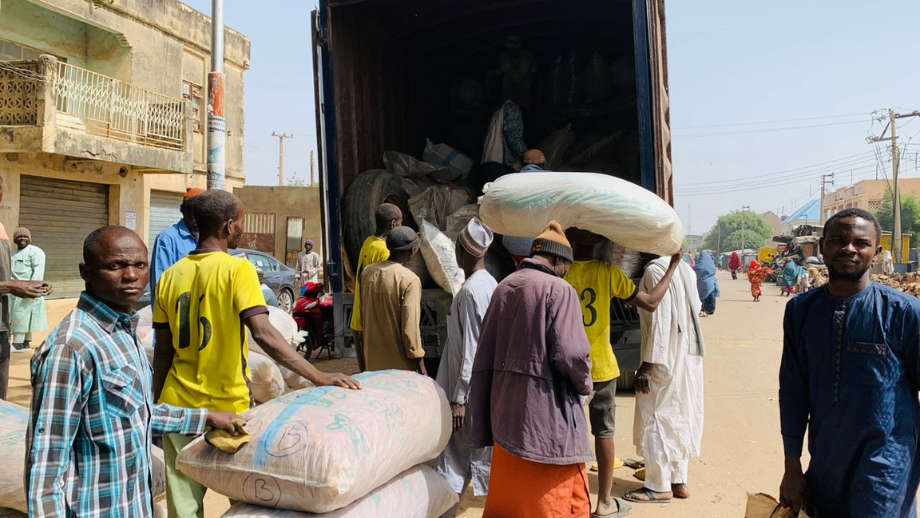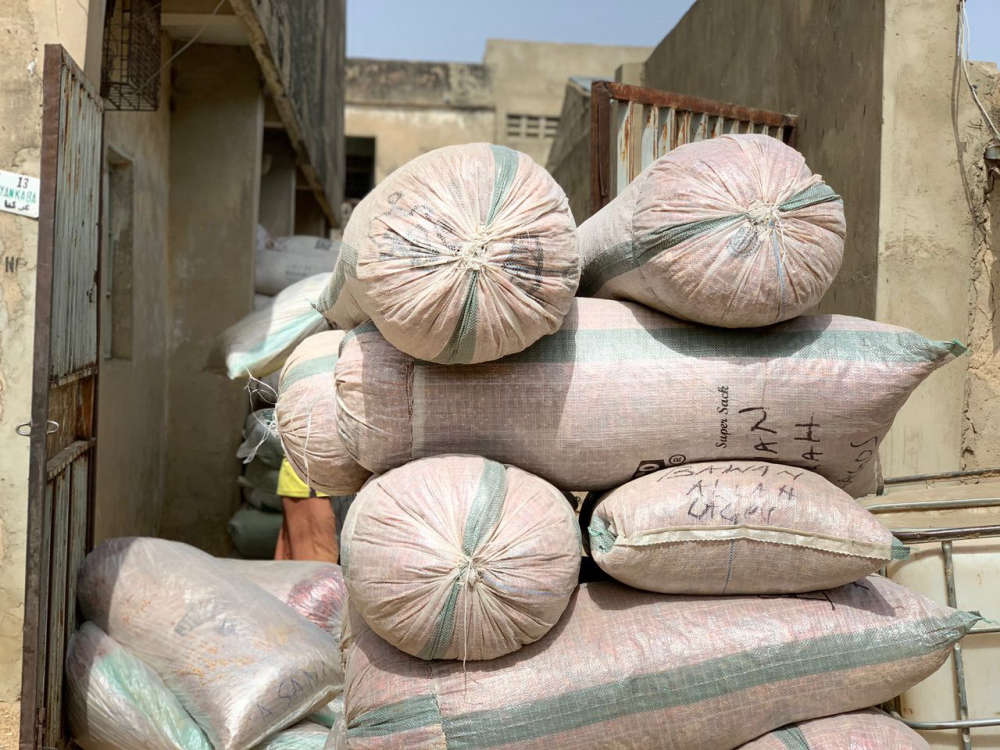
Scarcity of Tatashe (Red pepper) is looming in Kano as a result of the infiltration of substandard fertilizers and pesticides in the state.
This sad development has affected many Tatashe farmers, many of whom revealed that it has forced them to suspend farming, as others lament huge losses amounting to millions of Nigeria.
Farmers Share Their Plight
Magaji Cannavaro is one of the affected farmers. With over two decades of experience, Cannavero usually produces 300 bags of tatashe in his one hectare of land. But now, he is struggling to get 15 bags after applying the substandard fertilizer.
“I get 300 bags in a single hectare every year, but it will be difficult to get 15 bags now because of the substandard products.
We're calling all relevant authorities to look into this”, he pleaded.
Yahaya Isa suffered a similar fate, after investing N2.5m on his 2 hectares of Tatashe farm but could not make ends meet, no thanks to the substandard farm inputs.
“I spent N2.5m, unfortunately it's all bad news. Last year I got 120 bags, but if I get 20 bags this year I will dance and celebrate”, he said.
At the Yankaba Market, a famous perishable hub in the state, at least 20 trucks of tatashe are usually taken to the Western part of the country weekly, that's about from the 50 bags taken to Niger Republic.
But Saleh Umar, another farmer fears that this is not feasible this year.
“We send 20 trucks of tatashe to the west every week. And we distribute it to Niger Republic as well. But this is not achievable this year. So tatashe will be scarce and this will affect its price”.

Challenges Face By Farmers In Nigeria
According to a report by the Food and Agriculture Organization (FAO) of the United Nations, Nigeria has an estimated 34.5 million farmers, which represents about 70% of the country's labour force and a significant number of the farmers in Africa.
Unfortunately, these farmers are challenged with poor land tenure, limited financing, high post-harvest losses, and poor access to markets.
Other challenges include high production costs and poor distribution of inputs, hence creating a huge market for substandard fertilizer and adulterated pesticides in the market.
To add to these challenges, farmers still purchase 50kg of fertilizer between N23,000 and N29,000 depending on brand and location, against the quality fertilizers they purchase for N6,000 in 2021.

Perpetrators of Substandard Fertilizer To Face 5-Year Jail Term - FG
However, on October 16, 2019, the Federal Government signed the National Fertilizer Quality Control Act into law to boost farmers’ productivity and curb the production of adulterated farm inputs.
The Act provides the enabling environment needed for fertilizer enterprises to grow as well as protect investments in the sector. Under the law, offenders could face a 5-year jail term or fined if found wanting.
NAIDA Set Up Task Force Team To Tackle Adulteration
Reacting, the President of Nigeria Agro Input Dealers Association (NAIDA), Kabiru Umar Fara faults the affected farmers for buying the fertilizers from unregistered dealers.
Fara revealed that NAIDA has inaugurated the Compliance Monitoring team across the country and Federal Capital Territory (FCT) to tackle adulteration of farm inputs.
Fara who stressed that farmers must purchase fertilizer at registered outlets, “urging them to identify and document their complaint to the association for prompt sanctions and compensation based on the law”.

Expert Urge Farmers To Use Organic Fertilizer
But an Extension Agent with Sasakawa Africa Association SAA, Dan Asabe Dan Gambo Karfi linked the poor yield experienced by vegetable farmers in the State to their failure to seek expert advice.
Dan Asabe Karfi, who is an official of the Kano State Agro-Pastoral Development Agency KSADP stressed that to address this, “farmers must embrace the use of organic fertiliser”.
According to him, “the uncontrolled application of chemical fertilisers has affected soil fertility and productivity, adding that farmers must embrace the use of organic fertilisers to boost their yields”.

Kano Government Set To Deal With Perpetrators
On his part, the Director of Agricultural Extension in Kano State Agricultural and Rural Development Authority (KNARDA), Engr. Gambo Isa Garko says KNARDA will collaborate with the State Consumer Protection Council to rescue the situation.
“The farmers should seek the advice of extension workers before buying fertilizer or pesticide. The only thing we can do now is to contact the Consumer Protection Council to trace the perpetrators”, he said.
As farmers in the State continue to battle the challenges of post-harvest losses, complicating such with poor yield due to substandard products may undermine moves for food security in Kano and the country at large, hence the need for prompt action by all relevant authorities to remedy the situation.


